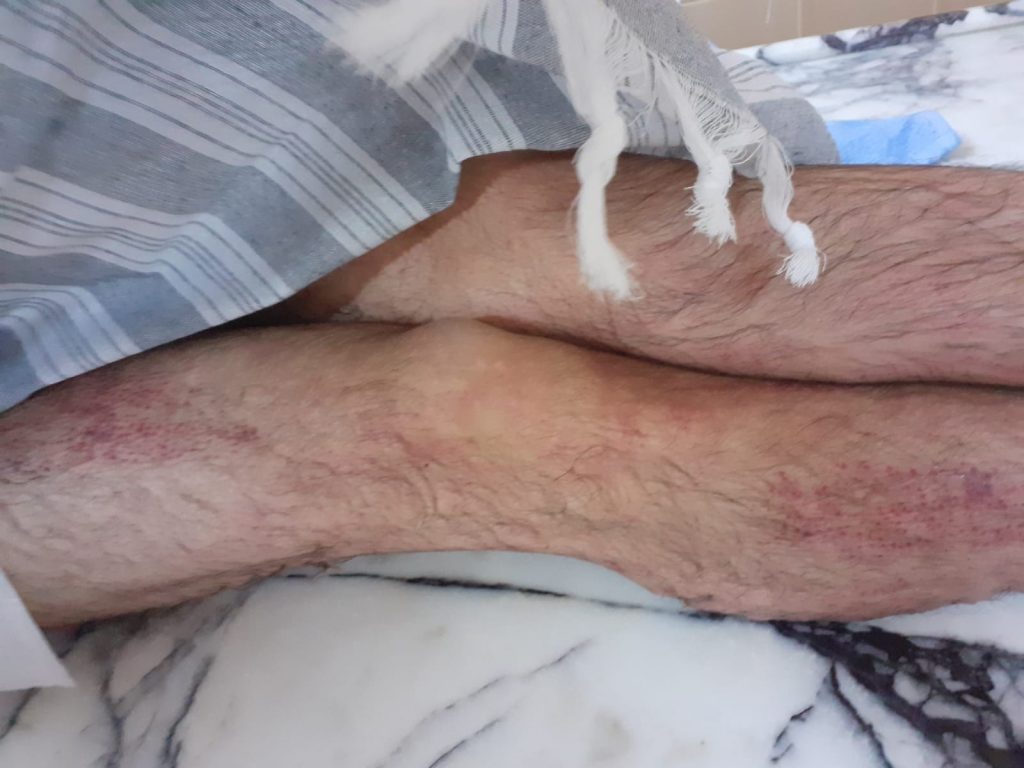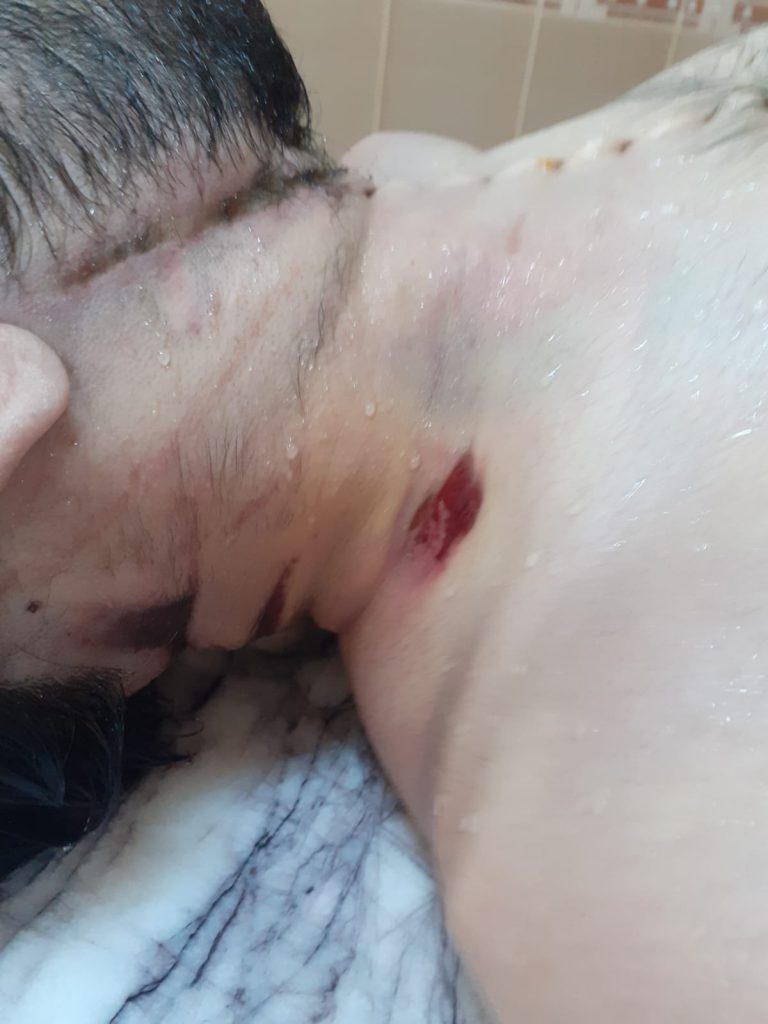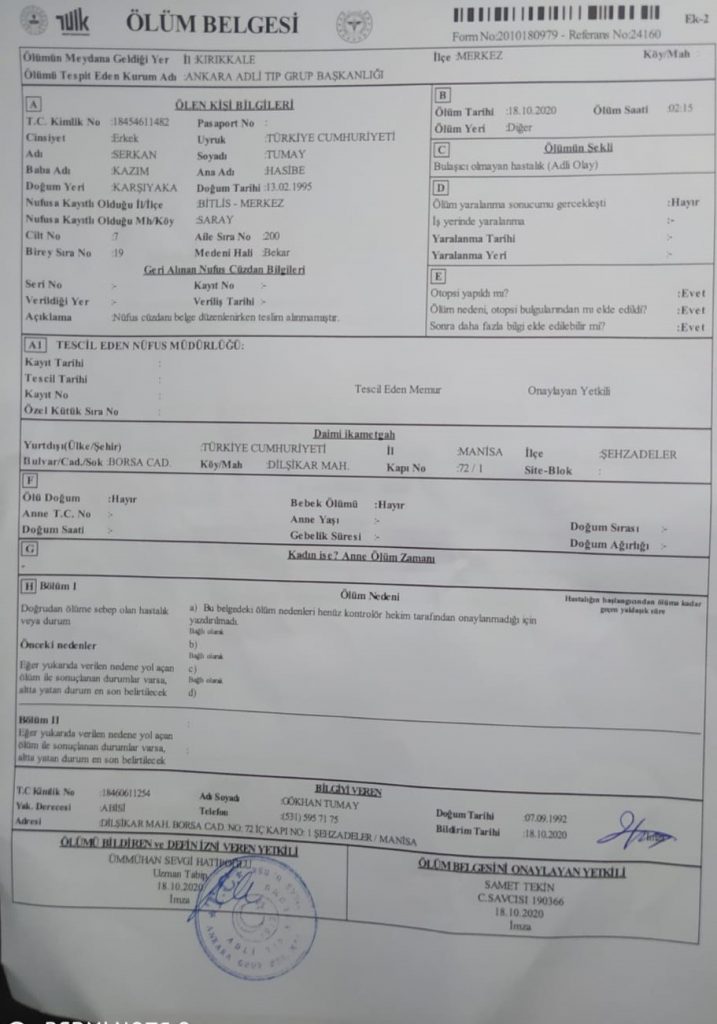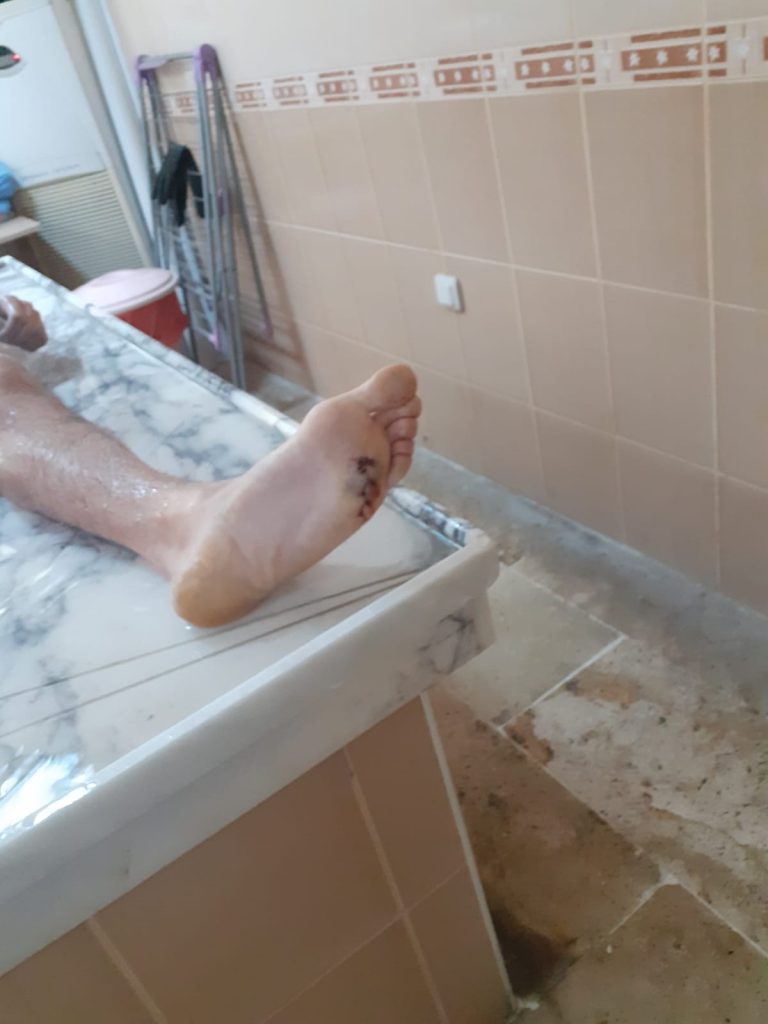“My brother was tortured to death in a cell where he was kept alone,” Hakan Tumay, brother of Serkan Tumay, who recently died in Turkey’s Kırıkkale F Type Prison, told Turkish Minute on Friday.
Serkan Tumay, a 25-year-old who had been in prison for nearly six years, passed away due to injuries inflicted by continuous assault and torture by prison guards, according to claims made by his family.

Postmortem photos of Serkan Tumay, taken by his brother, expose the bruises and scars on the inmate’s body due to the ill-treatment and torture that allegedly caused his death.

“I saw truncheon marks all over his body. His forehead was swollen due to a strong blow. There were bruises on his neck, back and arms, and even on the bottom of his feet. It was obvious he was tortured,” Hakan Tumay told Turkish Minute.

Serkan Tumay’s death certificate, seen by Turkish Minute on Friday, said his death was due to a “non-infectious disease” and was classified as a “forensic case.”
The family found that Serkan Tumay was beaten by prison guards on October 13, the day he was supposed to be able to call his family.
“We knew something was wrong when he didn’t call us that day. We received a call from the family of Hakan Ecevit, a ward mate of Serkan. Hakan Ecevit told his family he and Serkan were subjected to torture. They said Hakan Ecevit didn’t have any injuries but that Serkan had a broken arm and bruises on his arms and legs. They also told us Serkan was not taken to a hospital,” the brother said.
Hakan Tumay added that Serkan was taken to a hospital for a checkup a week after they found out about the torture and had filed a complaint with the Manisa Chief Public Prosecutor’s Office.
The brother went on to say that when Serkan returned from the hospital he was separated from his ward friend and put in an isolation cell as Hakan Ecevit had leaked details of the torture to the outside world.
On October 18 the Tumay family was told by the prison authorities to retrieve Serkan’s remains from the Ankara Council of Forensic Medicine.
“They gave us no information regarding why and how my brother died, or what happened inside that isolation cell. When I went to the Ankara Council of Forensic Medicine I saw all the torture marks on my brother’s body,” Hakan Tumay said.

The family spoke to the Human Rights Association (İHD) about the torture, and the Turkish watchdog appointed two lawyers to follow the incident.
“During the five years he spent in Kırıkkale F Type Prison, we filed a number of complaints after my brother told us he was being tortured and assaulted, but no action was taken, nothing was done. They intentionally killed my brother. The prison prosecutor, the warden, and the prison guards are all responsible for this death,” Hakan Tumay claimed.
With its isolation cells and three-person quarters, the Kırıkkale F Type Prison has been in the spotlight due to serious human rights violations committed against its inmates, most of them political prisoners. A substantial number of military officers, judges, and prosecutors arrested following the 2016 coup attempt are currently held there.
Hüsamettin Uğur, a former member of Turkey’s Supreme Court of Appeals who was imprisoned over his alleged links to the Gülen movement after the 2016 abortive putsch, was the first person to reveal the arbitrary practice of keeping prisoners in isolation cells implemented in Kırıkkale F Type Prison.
President Recep Tayyip Erdoğan and his Justice and Development Party (AKP) government accuse Muslim cleric Fethullah Gülen along with members of the Gülen movement inspired by him of orchestrating the attempted coup that claimed the lives of more than 250 civilians in Turkey on July 15, 2016.
Although Gülen and members of his faith-based movement strongly deny any role in the abortive putsch, Ankara removed in excess of 130,000 civil servants from their jobs and imprisoned more than 80,000 citizens over links to the movement as part of a massive purge launched under the pretext of an anti-coup fight.
Since then, there have been widespread claims of torture in Turkey’s prisons and detention centers that have so far gone uninvestigated.



